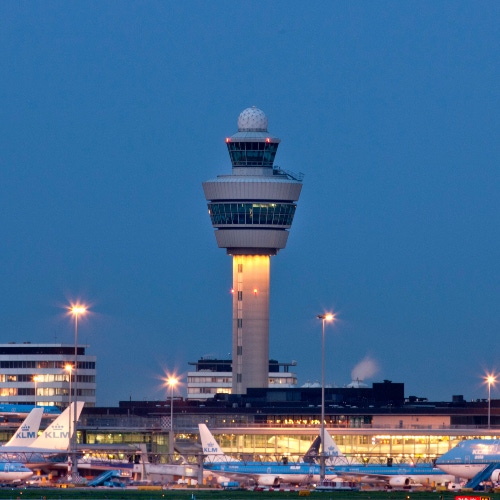Airlines start asking for permanent changes to C-band 5G
AT&T and Verizon agreed earlier this year to restrictions on their 5G transmissions near airports. Now the airline industry is petitioning the FCC to make some of those restrictions permanent.

The airline industry has begun petitioning the FCC to make permanent changes to the operation of some 5G networks around airports.
"These concepts ... would appear to not compromise wireless operators' actual use cases while further assuring aviation safety and providing a workable RF environment against which future radio altimeters can be designed and built," argued a group of airline officials who recently met with the FCC. The executives detailed their request in a filing to the FCC.
In a response, Verizon officials sought to downplay the topic.
"We continue to have positive discussions with the FAA and FCC, and progress is being made," Verizon officials wrote in a statement to Light Reading when questioned on the topic. "We are encouraged to see the airlines making progress with these issues as well."
AT&T officials declined to comment on the development.
Figure 1:  (Source: frans lemmens/Alamy Stock Photo)
(Source: frans lemmens/Alamy Stock Photo)
But at least one analyst believes the airline industry is going too far.
"The proposal by the aviation community to codify the voluntary and temporary restrictions on C-band usage graciously indulged by AT&T and Verizon is the most outrageous proposition I have seen in 50 years of following FCC matters," wrote Preston Padden, principal of Boulder Thinking. Padden previously was an official with the now-defunct C-Band Alliance, but noted that he filed his comment with the FCC on his own behalf.
"The FCC must just say 'no,'" he wrote.
No end in sight
At the heart of the issue are 5G transmissions in C-band spectrum near airports. Although regulators have contemplated such operations in C-band spectrum for years, the airline industry conducted a major public relations push against those transmissions last year, under the argument that 5G transmissions in C-band spectrum could interfere with some aircraft altimeters and potentially cause airplane crashes.
After months of back-and-forth on the topic, AT&T and Verizon early this year agreed to curtail their 5G deployments in C-band spectrum around airports to address the airline industry's concerns. Those restrictions were initially intended to last six months, but they now stretch into 2023.
Now the airline industry is asking the FCC to make some of those temporary restrictions permanent. Specifically, they're asking that AT&T, Verizon and other C-band operators be prevented from pointing their 5G antennas 90 degrees above the horizon, and from issuing "spurious emissions" in select spectrum bands "consistent with current mitigations."
"Reasonable 5G network/equipment limits are feasible and would avoid aviation implementing costly additional mitigations that are unnecessary given 5G's operational use cases," argued Airlines for America, Aerospace Industries Association, Regional Airline Association, National Air Carrier Association and other airline companies and associations, in their new filing to the FCC.
Changes and ramifications
The topic is a serious one for the 5G industry. After all, airports are high-use areas where wireless network operators often struggle to meet customer demand. That's partly why AT&T, Verizon and T-Mobile collectively spent more than $80 billion on C-band spectrum during a recent FCC auction.
Verizon, for its part, has been leading the charge in the purchase and deployment of C-band spectrum. (T-Mobile and AT&T both also purchased substantial C-band spectrum, but neither is deploying it as quickly as Verizon.) Verizon hopes to cover roughly 175 million people with its C-band 5G network by the end of this year.
But that coverage may be restricted around some airports where there are concerns of 5G interference with aircraft altimeters. The airline industry has been working to install new altimeters that aren't affected by 5G transmissions in C-band spectrum, but that is an expensive and slow-moving effort. That's likely why the airline industry is now looking at making temporary 5G mitigations around airports more permanent.
The FCC, for its part, is considering new rules around receivers that would allow the agency to proactively go after devices – like aircraft altimeters – that work outside the agency's parameters.
Related posts:
— Mike Dano, Editorial Director, 5G & Mobile Strategies, Light Reading | @mikeddano
About the Author(s)
You May Also Like











